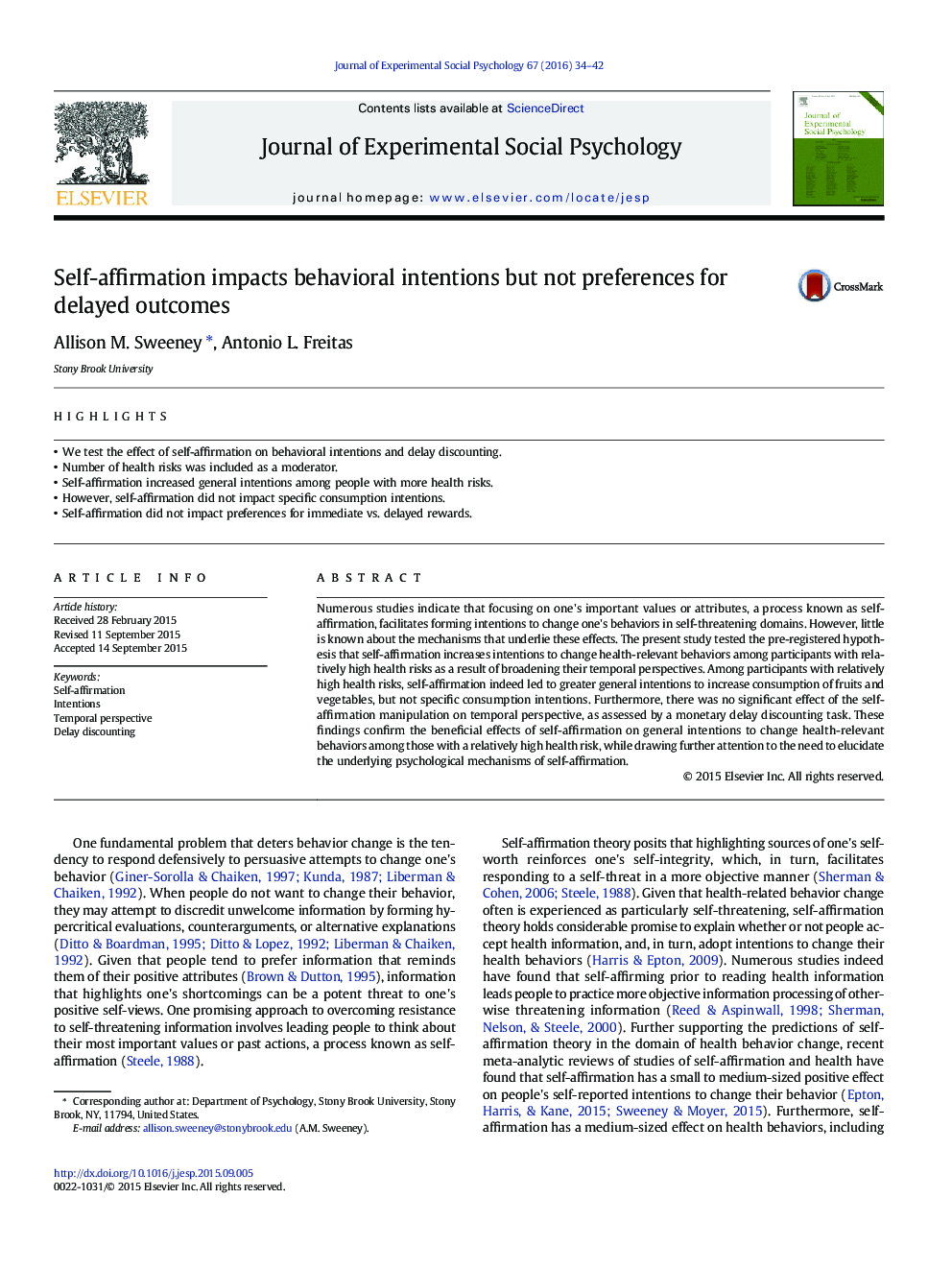| Article ID | Journal | Published Year | Pages | File Type |
|---|---|---|---|---|
| 5045747 | Journal of Experimental Social Psychology | 2016 | 9 Pages |
Abstract
Numerous studies indicate that focusing on one's important values or attributes, a process known as self-affirmation, facilitates forming intentions to change one's behaviors in self-threatening domains. However, little is known about the mechanisms that underlie these effects. The present study tested the pre-registered hypothesis that self-affirmation increases intentions to change health-relevant behaviors among participants with relatively high health risks as a result of broadening their temporal perspectives. Among participants with relatively high health risks, self-affirmation indeed led to greater general intentions to increase consumption of fruits and vegetables, but not specific consumption intentions. Furthermore, there was no significant effect of the self-affirmation manipulation on temporal perspective, as assessed by a monetary delay discounting task. These findings confirm the beneficial effects of self-affirmation on general intentions to change health-relevant behaviors among those with a relatively high health risk, while drawing further attention to the need to elucidate the underlying psychological mechanisms of self-affirmation.
Related Topics
Life Sciences
Neuroscience
Behavioral Neuroscience
Authors
Allison M. Sweeney, Antonio L. Freitas,
